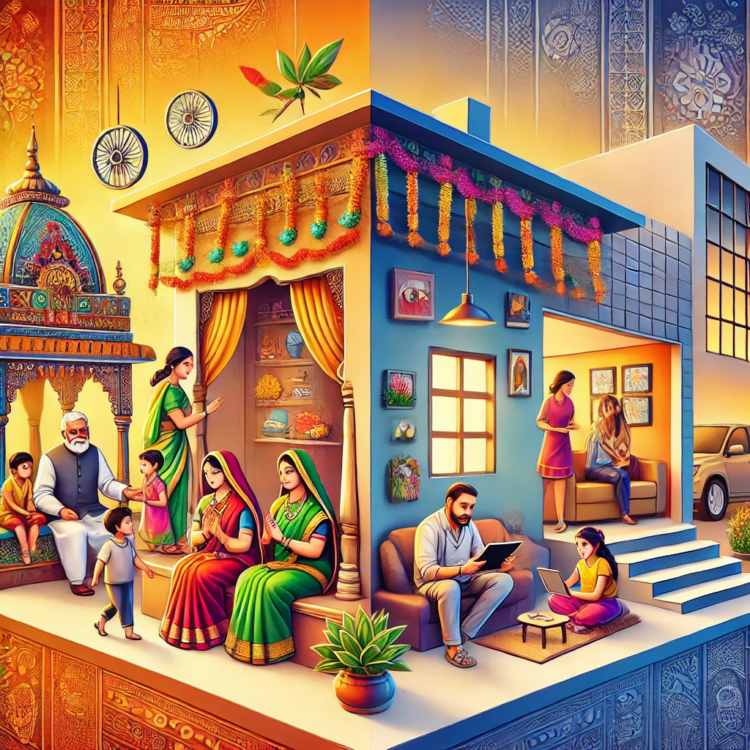
Balancing Tradition and Modernity: Insights into Indian Parenting Practices
The joint family system, which remains a defining feature of Indian culture, serves as a support network where children grow up under the care of multiple family members. Balancing Tradition and Modernity: Insights into Indian Parenting Practices. This fosters a sense of belonging, shared responsibilities, and collective decision-making. Balancing Tradition and Modernity: Insights into Indian Parenting Practices.
Into Indian Parenting Practices
Indian parenting practices have always stood out for their deep-rooted values and cultural significance. A country as diverse as India offers a unique amalgamation of traditions passed down through generations, alongside the inevitable influences of modernity. This balance, though intricate, is at the core of raising well-rounded children in today’s ever-changing world. By exploring Indian parenting’s traditional aspects and its adaptation to modern demands, we can uncover valuable insights into nurturing children effectively.
The Foundation of Traditional Indian Parenting
At the heart of traditional Indian parenting lies a strong emphasis on family values, Indian parents traditionally place great importance on instilling virtues such as humility, empathy, and gratitude. Cultural rituals, festivals, and stories from epics like the Mahabharata and Ramayana often serve as tools for imparting these lessons. These traditions shape a child’s character and connect them to their roots, ensuring they carry forward the values of their heritage. Balancing Tradition and Modernity Insights into Indian Parenting Practices
Another hallmark of traditional parenting is the emphasis on discipline and respect. Children are taught to value education, work hard, and honor their elders. This structured approach has contributed to the success of countless Indian individuals in various fields worldwide. However, this discipline is often accompanied by a nurturing and protective attitude, ensuring children feel secure and loved.
The Influence of Modernity on Parenting Practices
With globalization and technological advancements, Indian parenting has witnessed significant transformations. Today, parents are tasked with raising children who can thrive in a competitive and fast-paced world while staying connected to their cultural roots. This has led to the adoption of modern parenting techniques that emphasize individuality, creativity, and critical thinking. Balancing Tradition and Modernity: Insights into Indian Parenting Practices.
One notable shift is the focus on open communication. Modern Indian parents are increasingly encouraging their children to express their thoughts and emotions freely, fostering an environment of trust and understanding. This marks a departure from the traditional authoritative approach, promoting a more democratic family dynamic.
Additionally, exposure to global education systems and parenting philosophies has led to the adoption of progressive practices. Parents are now more inclined to prioritize extracurricular activities, mental health, and holistic development alongside academic achievements. They understand the importance of nurturing a child’s unique talents and interests, rather than imposing rigid expectations.
The integration of technology into everyday life has also reshaped parenting strategies. From educational apps to online learning platforms, parents are leveraging digital tools to enhance their children’s learning experiences. However, this also brings challenges such as managing screen time and ensuring online safety, requiring a balanced approach.
Navigating the Balance: Tradition Meets Modernity
Balancing tradition and modernity in Indian parenting involves embracing the best of both worlds. Here are some key strategies:
- Preserving Cultural Identity: Parents can introduce their children to cultural practices, regional languages, and traditional art forms while allowing them to explore contemporary hobbies and interests. This dual exposure helps children develop a well-rounded perspective.
- Encouraging Critical Thinking: While traditional wisdom provides a strong moral foundation, modern parenting emphasizes the importance of questioning and reasoning. Parents can teach children to respect traditions while evaluating them through a logical lens, enabling informed choices.
- Adapting Education Priorities: While the traditional focus on academic excellence remains, parents can broaden their definition of success to include creativity, emotional intelligence, and life skills. Supporting children’s passions and fostering a love for learning can lead to more fulfilling futures.
- Building Emotional Resilience: Modern parenting recognizes the importance of mental health. Parents can create safe spaces for children to share their feelings and seek help when needed, ensuring their emotional well-being without compromising traditional values of resilience and perseverance.
- Balancing Freedom and Discipline: Striking the right balance between granting autonomy and enforcing discipline is crucial. By setting clear boundaries while respecting children’s individuality, parents can raise responsible and self-reliant individuals.
Challenges in Achieving the Balance
Despite the numerous benefits, balancing tradition and modernity in Indian parenting is not without its challenges. Generational gaps often lead to differing opinions on parenting approaches. For instance, grandparents may prefer stricter methods, while parents lean toward leniency. Navigating these differences requires effective communication and mutual respect.
The pressure to conform to societal expectations can also be overwhelming. Parents may feel torn between adhering to traditional norms and embracing modern values that better align with their child’s needs. Striking this balance demands courage and clarity of purpose.
Moreover, the rapid pace of technological change presents its own set of dilemmas. Parents must stay informed and adaptable to guide their children effectively in a digital-first world.
Conclusion
Indian parenting is a beautiful blend of tradition and modernity, reflecting the country’s dynamic culture and evolving aspirations. By preserving the core values of respect, discipline, and family bonds while embracing openness, innovation, and individuality, parents can equip their children to thrive in a globalized world. Achieving this balance requires mindfulness, adaptability, and a deep understanding of both heritage and contemporary needs.
As Indian families continue to navigate this journey, they offer a powerful example of how tradition and modernity can coexist harmoniously. This approach not only strengthens familial ties but also empowers the next generation to confidently embrace their identity and make meaningful contributions to society.
5 Quick Morning Routines for Busy Parents
